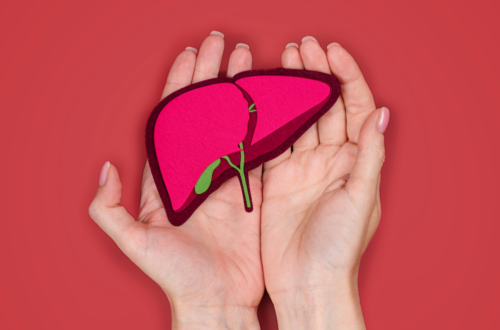
Dizziness and Wegovy: What’s the Connection?
I’ve recently had an increasing number of patients report dizziness while taking Wegovy (semaglutide). This has been observed in both newly prescribed patients and those who have been on the medication for over a year. The dizziness appears distinct from more common side effects such as nausea, vomiting, diarrhea, and constipation. It occurs suddenly and unpredictably but is consistently present. What could be causing this dizziness in patients using Wegovy for weight loss? Let’s explore the science to better understand this phenomenon.
What is Wegovy?
Wegovy is a once weekly prescription medication containing semaglutide, which is used for chronic weight management in adults with obesity or overweight who also have weight-related health conditions, such as insulin resistance, high blood pressure, or high cholesterol. It belongs to a class of drugs known as GLP-1 receptor agonists (glucagon-like peptide-1), which work by mimicking a hormone in the body that regulates appetite and food intake.
Wegovy helps reduce appetite, slow digestion, and promote weight loss. It is typically prescribed alongside lifestyle modifications, including nutritional counseling, increased physical activity, improved sleep, and stress reduction.
What are Common GLP-1 Side Effects?
Wegovy, like many other drugs in the GLP-1 class (such as Ozempic, Trulicity, and Victoza), shares many of the same potential side effects. The top 5 most common side effects of GLP-1 medications are:
- Nausea – The most common side effect, especially when starting treatment.
- Vomiting – Often linked with nausea as the body adjusts to the medication.
- Diarrhea – A frequent gastrointestinal side effect.
- Constipation – Some patients experience this instead of diarrhea.
- Abdominal pain – Stomach discomfort or cramping is commonly reported.
These side effects are usually temporary and tend to decrease as the body becomes accustomed to the medication.
Possible Causes of Dizziness with Wegovy
While it’s possible for people to experience dizziness with any GLP-1 medication—the Ozempic package insert reports that less than 0.4% of users experienced fatigue, dysgeusia (altered taste)—dizziness appears to be more commonly associated with Wegovy use. The cause of dizziness with Wegovy could stem from a variety of factors.
Low Blood Sugar
Because semaglutide, the active ingredient in Wegovy, was initially used to help lower glucose levels in individuals with type 2 diabetes, it also has the potential to lower glucose in euglycemic individuals. This can sometimes lead to hypoglycemia (low blood sugar). Hypoglycemia is a common cause of dizziness, as the brain relies on glucose as its main energy source. When blood sugar levels drop rapidly, people may experience dizziness, weakness, or even fainting.
Low Blood Pressure
For individuals managing elevated blood pressure (hypertension) with medication, weight loss from Wegovy can improve overall blood pressure control, potentially requiring an adjustment to their medication.
Dizziness is a common side effect of low blood pressure, especially during transitions from sitting to standing, a condition known as orthostatic hypotension. This occurs when the body struggles to adjust quickly enough to send sufficient blood to the brain, leading to lightheadedness or dizziness.
Dehydration
Because Wegovy can cause gastrointestinal side effects such as nausea, vomiting, or diarrhea, these symptoms may lead to dehydration, which can, in turn, result in dizziness. Additionally, vomiting or diarrhea can cause an imbalance of electrolytes (such as sodium and potassium), which are essential for maintaining proper body functions. These imbalances can also contribute to dizziness.
An Allergic Reaction
Fainting or feeling dizzy could be a sign of an allergic reaction. In fact, the Wegovy package insert lists dizziness as a possible symptom of an allergic reaction, along with swelling of the face or lips, difficulty breathing, severe rash or itching, and an increased heart rate.
Key Takeaways
For obvious reasons—safety, discomfort, and the potential for an underlying or worsening problem—persistent or recurrent dizziness should not be ignored. While it may not be possible to eliminate all episodes of dizziness, further investigation and trialing various interventions are worthwhile to help reduce the frequency and intensity of dizzy spells. If other measures prove ineffective, switching to a different GLP-1 medication or discontinuing them altogether may be the best solution.
- ELS LC. GLP-1 diabetes and weight-loss drug side effects: Harvard Health. February 5, 2024. Accessed October 25, 2024. https://www.health.harvard.edu/staying-healthy/glp-1-diabetes-and-weight-loss-drug-side-effects-ozempic-face-and-more
- Kommu S, Whitfield P. Semaglutide. In: StatPearls. StatPearls Publishing; 2024. Accessed October 25, 2024. http://www.ncbi.nlm.nih.gov/books/NBK603723/
- Kennedy C, Hayes P, Salama S, Hennessy M, Fogacci F. The effect of semaglutide on blood pressure in patients without diabetes: a systematic review and meta-analysis. Journal of Clinical Medicine. 2023;12(3):772. doi:10.3390/jcm12030772


You May Also Like

Fatty Liver on the Rise: What You Need to Know
February 18, 2025
Are “Forever Chemicals” Really Forever?
November 12, 2024
